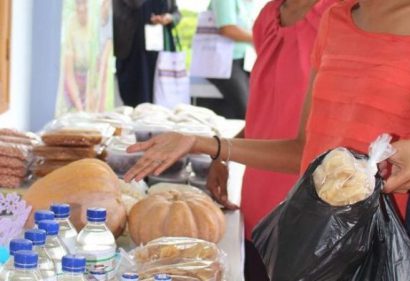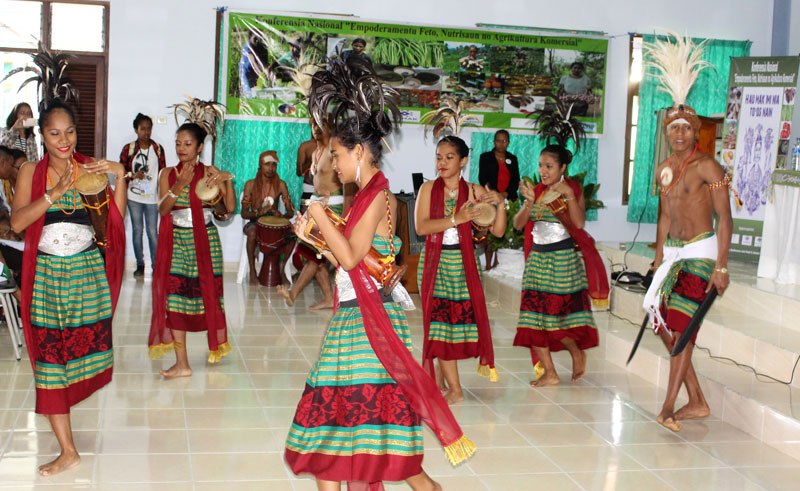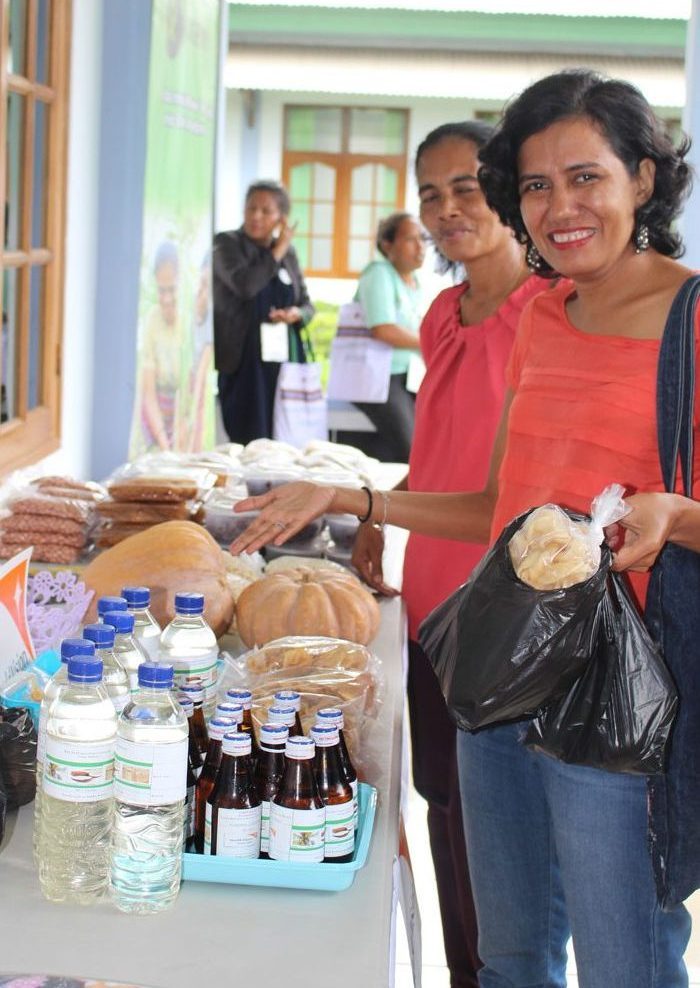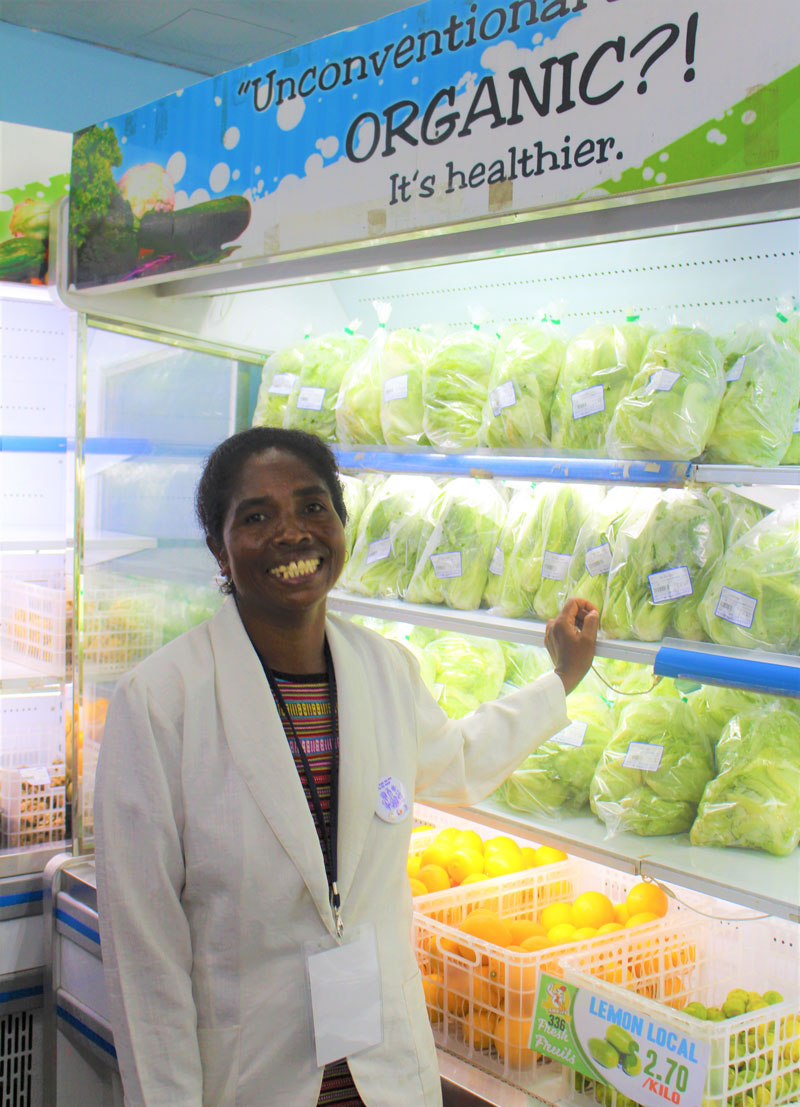
TOMAK has partnered with Rede Feto (the Timorese Women’s Network) and the Secretary of State for Women’s Economic Empowerment (SEM) to host a 3-day National Conference on Women’s Empowerment, Nutrition and Commercial Agriculture. A large group of 123 people (73% women and 27% men) attended the conference, held in Dili from 14-16 March. The Australian Government, the President’s Nutrition Awards Program, and the National Council for Food Security, Sovereignty and Nutrition in Timor-Leste (KONSSANTIL) co-sponsored the event.

The conference was high in energy and professional exchange, bringing together a diverse range of people who willingly shared, learnt and were inspired by each other. Nineteen women’s organisations and 20 women’s agricultural producer groups were represented, along with key government service providers, development partners and private sector representatives. Women’s producer groups held a marketplace to showcase their products, which gave government and private sector representatives the opportunity to hear first-hand the challenges and aspiration of these groups.
Participants visited a nutrition-sensitive agricultural activity involving integrated poultry and aquaculture, established by the NGO HASATIL. They also toured a social enterprise shop run by HAFOTI, a women’s organisation promoting local produce. To cap things off, local supermarket Kmanek hosted participants and spent time explaining their business model. This was of particular interest to the women farmers present. One of the participants, Lurdes Mendousa Ramos already sells her produce to Kmanek on a regular basis, but had never had the chance to come to the capital to see how her produce is finally sold to customers. Her smile was broad and proud as she stood beside her produce for sale on the shelf.


Executive Director of Rede Feto, Dinorah Granadeiro recognised the efforts of women and women’s organisations in her closing remarks.
“Women’s contribution in food security, nutrition and commercial markets in Timor-Leste is very high. It is equal and more than men in many areas. But still, their contribution and right to be involved in decision-making remains undervalued and unrecognised. This must change. The contribution of women’s organisations in these sectors must be recognised. They are very active in establishing and supporting producer groups and filling the gap in unmet services left by formal providers. Across our networks, we have hundreds of women working effectively as extension workers, mobilising and motivating communities to trial new things to improve nutrition and increase their income. Bringing us all together with the government and private sector as we have done during this conference, builds respect and motivates us with new ideas for better collaboration.”